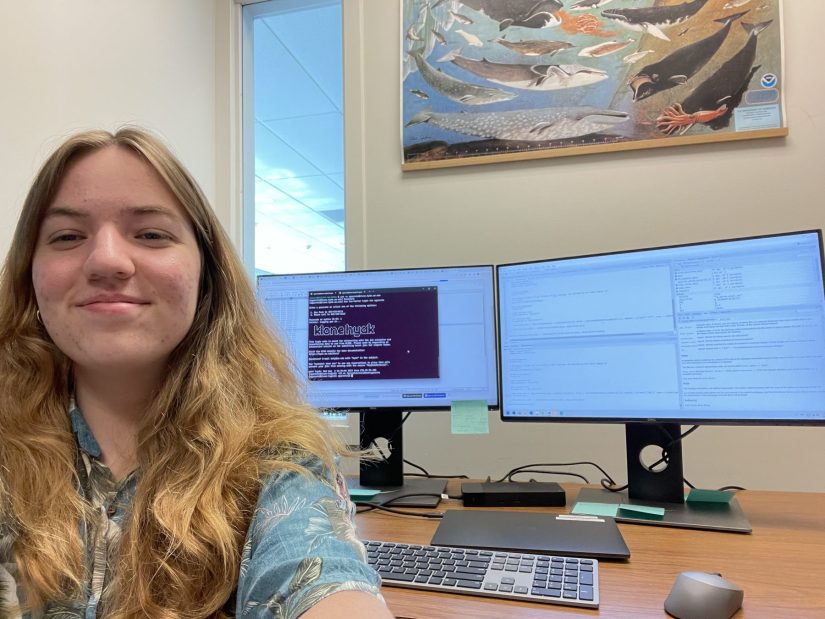Mutation rate and mentorship: undergrad summer research with dolphins
Spending the summer working on a mutation rate project with SAFS Professor Amy Van Cise, Sophie Garrote is using bioinformatics to delve into different dolphin species.
Part of a mentorship program through UW LSAMP which focuses on enhancing minority participation in STEM, Sophie has been picking up valuable skills such as programming, knowledge of cetacean species, and getting hands-on experience with research.
She started working with her mentor Amy Van Cise, head of the Whale and Dolphin Ecology Lab at SAFS, when the application matched them based on research interests. Kicking off the summer with an in-depth introduction to dolphin species and their ecology, Sophie is now using Linux and R programming to understand how genomic mutation rates differ among species. Through her internship she has also learned to work with Hyak, UW’s high-performance computing cluster, which she’s been using for the intensive computational power that it takes to align and analyze whole genome sequence data.

Mutation rate is an important number in evolutionary biology. It’s used in many ways such as to construct ancestries of different animals, trace back where they came from, and calculate ancestral population sizes. These estimates all play a vital role in the conservation of these species, and getting them right depends on having a precise understanding of the fundamental rate at which genomes mutate in each species.
For marine mammal populations, a lot remains unknown about their life history and interactions as it is difficult to study them in the wild, so mutation rate is a helpful piece of information even for those species not considered endangered. Sophie shares that it’s interesting work because it offers the opportunity to learn much more about marine mammals, as well as potentially assisting in conservation efforts.
Using programming for the first time, Sophie has been working with genomic datasets for species that already have this data available, i.e., the genome has been sequenced by another lab and shared publicly in our national genomic archive, NCBI GenBank.
With the project due to finish up at the end of summer, Sophie will present her work during a poster session at the Summer Undergraduate Research Symposium, building more critical skills for her future academic journey and career.
The LSAMP program plays a key role for minority participation in STEM by focusing on building resources, networks and experience for underrepresented students who don’t have research experience and want to get involved in this type of work with professors. Sophie shared that it’s valuable in helping students to build confidence and knowledge in a variety of ways from reaching out to professors for potential research experiences, writing cover letters and CVs, and connecting students with valuable resources throughout their studies.
About to begin her second year at UW as an Environmental Science and Resource Management Major, Sophie’s tips for others wanting to get involved in research is to always use the resources available to you as a student, and don’t be afraid to reach out to new connections to pursue research opportunities.